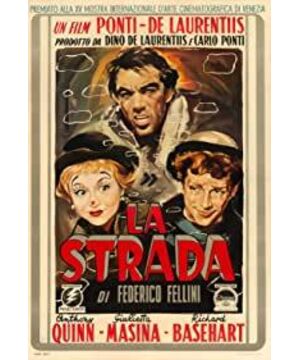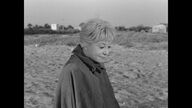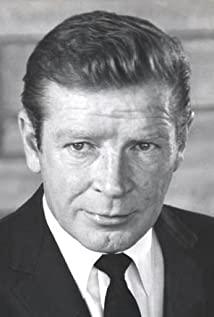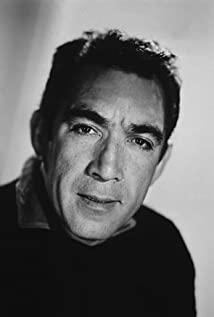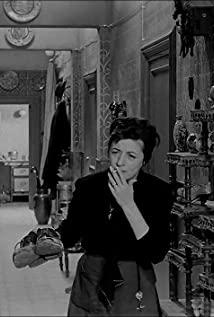The heroine was sold by the family to the rough homeless entertainer Zambano, who lived in his filthy truck, sat on the barren ground to make a fire and cook, spent the night in the church barn on rainy days, dressed in ragged holes clothes, in restrained condition. The few times I saw them scooping pasta out of an iron bucket, I found it hard to swallow.
The heroine always switches back and forth between her aggrieved face and her happy face. It's happy to wake up and find sleeping next to him; it's aggrieved to be abandoned by him to have sex with others; it's a pleasure to wake him up to find that he's still alive; it's aggrieved to ask Ross if he is treated the same.
Zambano's rudeness and disdain hurt her, and his presence was the only surety in her life. She needs to rely on him to drive this dirty car to the next town; she needs to rely on his dirty car to sleep and warm; she needs to rely on his art to make a living. From the moment the family sold her, their lives were bound together, more like family members. She thought she could escape such a painful life by running away from him and the car. She tried to run away, wandering, and Zambano took her back to the car. She gradually gave up, rejecting all other possibilities. On the one hand, she has given up struggling, and it is difficult for people to have long-term and continuous senseless feelings of disgust. As long as she realizes that she cannot get rid of it, and it is thankless, it will soon turn into self-hypnosis, because the pain is difficult to face. On the other hand, Zambano and his car are like a not-so-good family of origin. Even if the relationship is not healthy, even if it causes harm to the other party. But growing up here, I know the bottom line, so much time, have been in close contact and accompany each other. No matter how hideous the other party is, there are still some warm moments. It was as if Zampano gave her the big bowl every time he ate. No matter how much you want to stay away, it has already become a part of yourself.
One day Zambano was going to join the circus, and the tightrope walkers who had repeatedly teased him were also performing there. Zampano is not a humorous and self-deprecating person, let alone being teased. Every time he is determined to clean up the tightrope walker, he escapes.
The tightrope walker's sad and long violin shines into the difficult life of the heroine, who asks Zambano to teach her the instrument too.
The circus asked her to perform with tightrope walkers, but Zambano ran into her, they chased and fought again, and was arrested by the police for carrying a knife. The circus was about to evacuate, and the heroine stayed in Zambano's truck, thinking about her whereabouts, but waited for the tightrope walker released from the prison.
He's witty, bohemian, almost the opposite of Zambano. My intuition is that he fell in love with the heroine at first sight, and there are four proofs. First, he saw the gaze of the heroine for the first time; secondly, the comfort of coming here; thirdly, the invitation to the heroine to wander with him; Fourth, the act of kindness that finally sent her back to Zambano. While he gave the heroine confidence in the meaning of life, it was useless to discredit the heroine because she was ugly and could not cook. While Nuo is the mortal enemy, he persuades the heroine that Zambano likes her. He is full of contradictions, and that is his charm. Even the mockery of Zambano was not malicious, even if the bad taste of his joke was to risk death.
The heroine falls in love with her life because of the meaning given by the tightrope walker, and even falls in love with Zambano and his car. When the nun marveled at the fact that they lived in this car, she proudly said that it was very spacious and could do anything.
The tightrope walker ends up dying of Zambano's revenge, even if it's an unintentional miss. Zambano pushed his body and car off the bridge to cover up the crime.
The tightrope walker dies, and so does the meaning of the heroine's life. She began to be unable to perform, lying in the truck all day crying, occasionally saying, "The fool is dead, like a crazy person."
Zambano was outside the car, waiting for her for ten days. Eventually leaving her behind, he needs to make a living.
Then one day, he heard the sad tune that the heroine liked again from the mouth of the woman on the street, and asked people that this crazy woman who didn't seem to eat or drink had died. He drank like a loaded cannonball and fired without a haircut. The expression of a person who grew up in a typical victim environment. The more fragile it is, the more thorns all over it. The more he wanted to say something, the more he barked.
He frantically admits that he loves the heroine.
However, the reality is as always tyrannizing him
Yesterday was a good day to watch Day Day, and Fanzi mentioned this black and white film over and over again. She said that a life that is not touched by this film is not worth living.
View more about La Strada reviews


